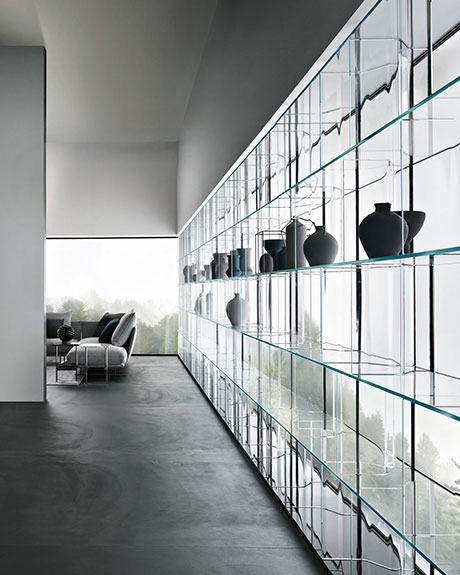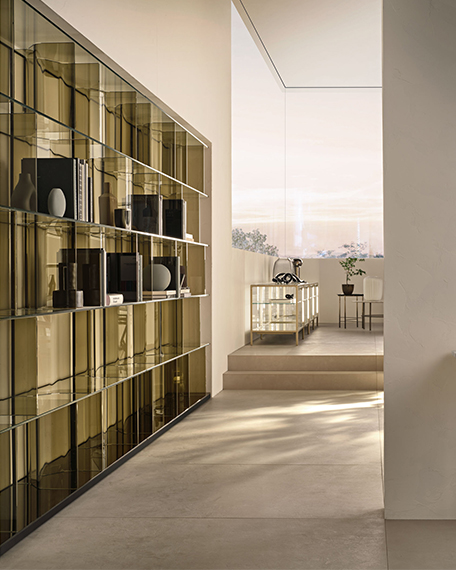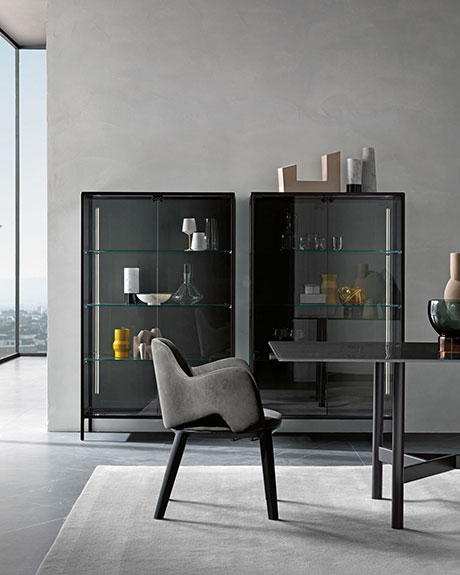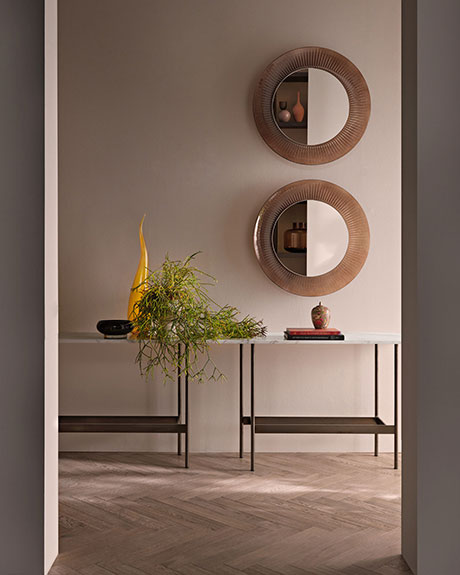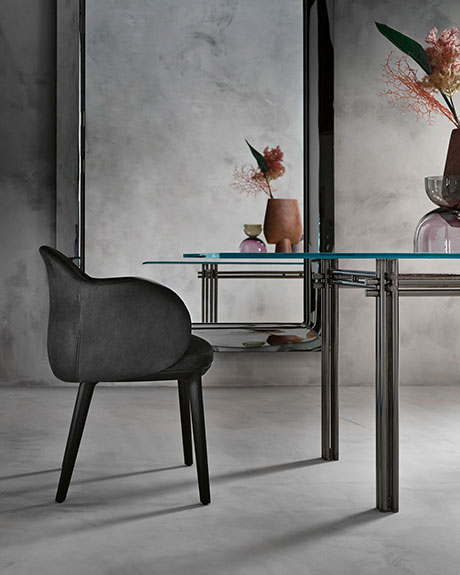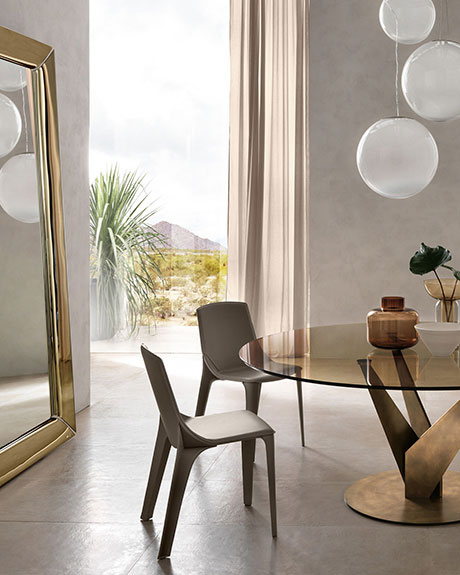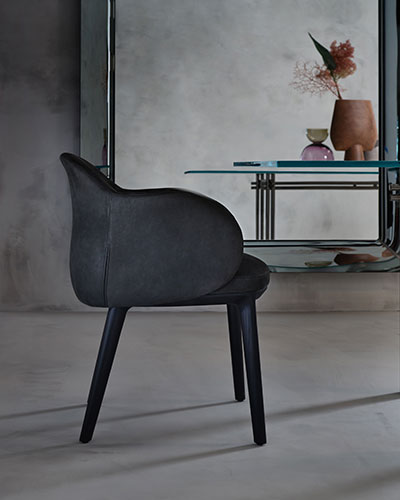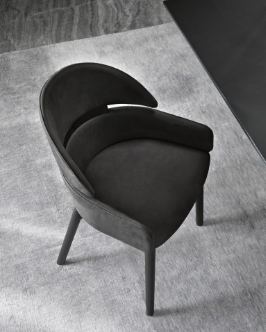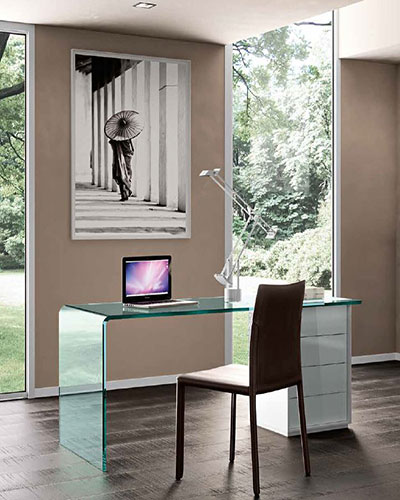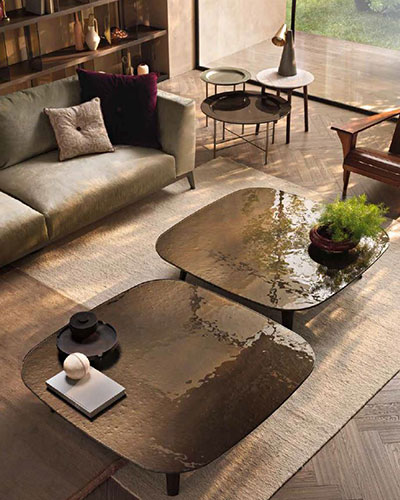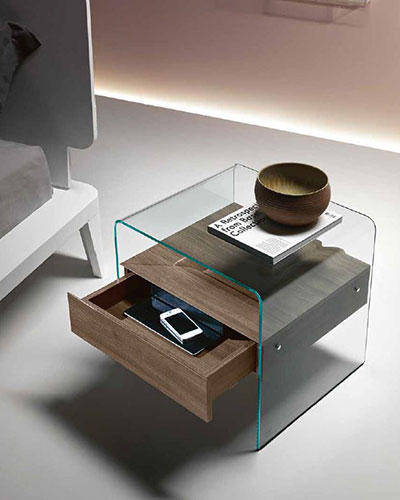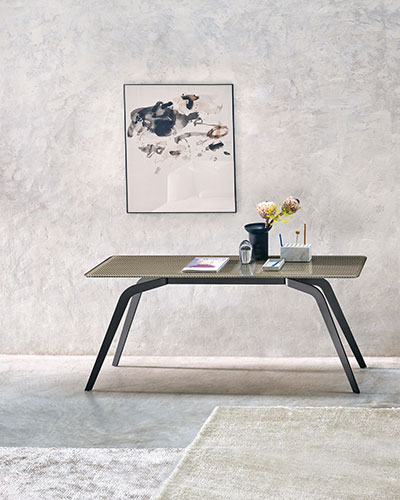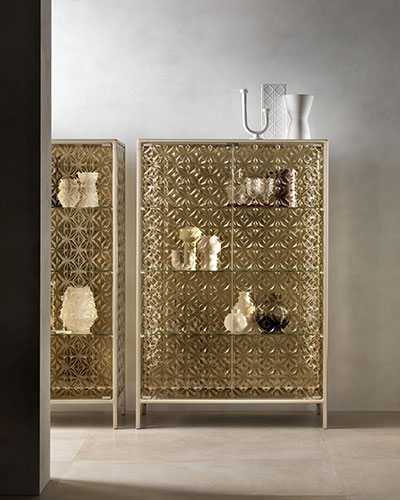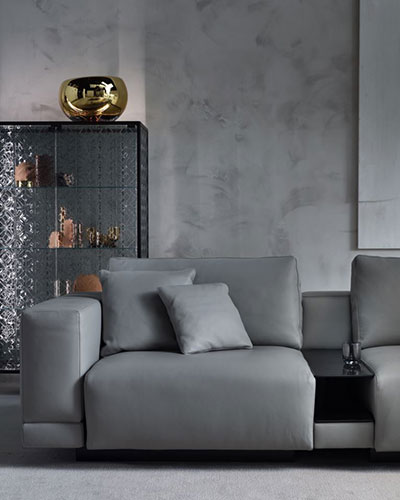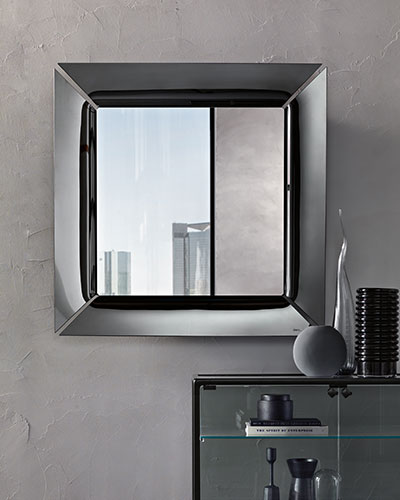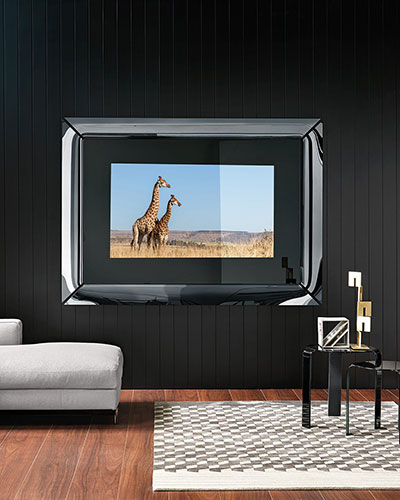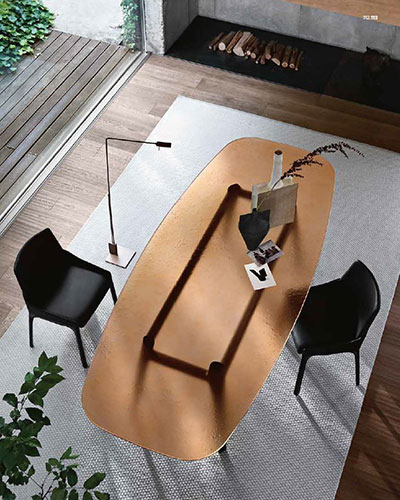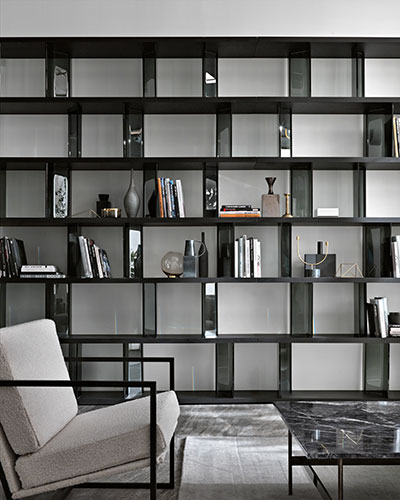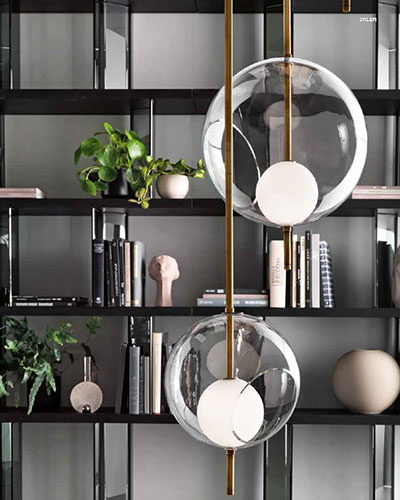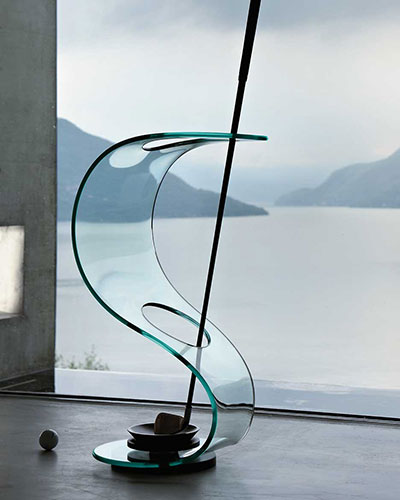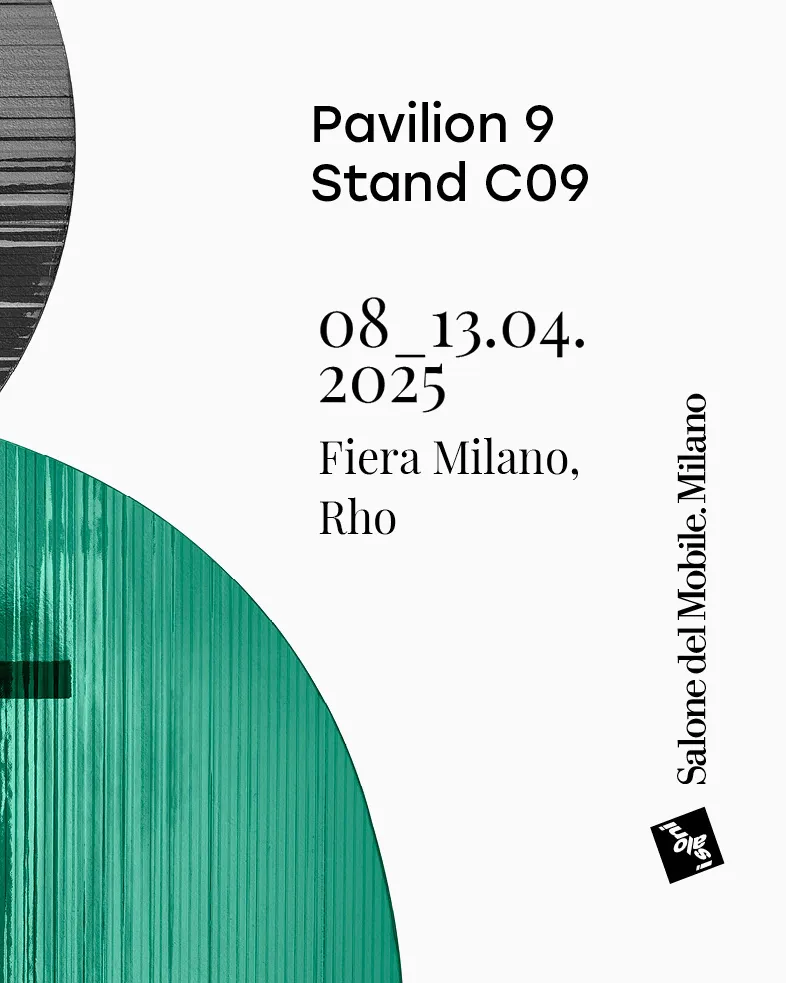1987-2017 GHOST, AN ICON TO CELEBRATE AND ENJOY. IN A “MINI” VERSION TOO.
Fiam has always focused on the aesthetic and poetic value of the objects created, and celebrates intuition and brilliance by commemorating the thirtieth anniversary of the armchair, presented for the first time at the Salone del Mobile in Milan in 1987, winning the prize for the most innovative product.
With an initiative aimed at recounting the amazing story of Ghost, of the excellence it epitomises, and the cultural and social commitment of the company, the designers, who collaborate with Fiam, were each asked to participate in the creation of two Ghosts in Mini versions, to reinterpret and decorate by hand with the paint colours chosen by Cini Boeri.
Thirty-seven renowned Italian and foreign designers took part: Archirivolto Design, Bartoli Design, Dante O. Benini and Luca Gonzo, Luca Casini, Valerio Cometti, Angelo Cortesi, Marzia and Leo Dainelli, Nicola De Ponti, Fabio Di Bartolomei, Rodolfo Dordoni, Doriana and Massimiliano Fuksas, Chafik Gasmi, Leandro Gerussi and Carlo Sartoris, Roberto Giacomucci, Makio Hasuike, Massimo Iosa Ghini, Setsu and Shinobu Ito, Patrick Jouin, Danny Lane, Marta Laudani and Marco Romanelli, Vittorio Livi, Lucidi Pevere, Xavier Lust, Francesco Mansueto and Luca Lo Bianco, Ilaria Marelli, Matteo Nunziati, Satyendra Pakhalé, Roberto Paoli, Christophe Pillet, Prospero Rasulo, Paolo Rizzatto, Roberto Semprini, Studio Klass, This Weber, Enrico Tonucci, Elio Vigna, Marcel Wanders.
A project that represents much more than a thirtieth anniversary because it reflects the values and the care that Fiam has towards the territory: of the two Mini ghosts decorated by each designer, one will be auctioned in a charity event organised by the company with the proceeds going to initiatives supporting the people affected by the earthquakes in Central Italy.
Ghost, an immortal product which has entered the collective imagination, demonstrates once again how current it is, becoming the focus of the celebration of beauty and creative genius.
The Mini Ghosts decorated exclusively for the project, created in collaboration with top companies like AGC Glass Europe, Biesse Group, Fiandre and Oece, will be displayed on the new Fiam stand, in Hall 5, Stand B11, during the Salone del Mobile.
Fiam’s partners in the Ghost30°Anniversary project:
www.yourglass.com
www.biessegroup.com
www.granitifiandre.it
www.oece.it
Press Office
Copyright
+39 02 33104760
info@agenziacopyright.it
GHOST, THE THOUGHTS OF THE SOCIOLOGIST, DOMENICO DE MASI
Ghost means shadow, trace, semblance, spirit, soul. Glass alone can transform this abstract concept into a physical object. Achieving this transformation was the challenge overcome by Cini Boeri in collaboration with fellow designer, Tomu Katayanagi, when they decided to shape glass into an armchair – a receptacle not for a liquid, but to hold the human body.
So, Ghost, the glass armchair, was born, shaped by the technical and aesthetic skill of Vittorio Livi, debuting at the Salone del Mobile in Milan in 1987, where it immediately received an award in a competition by the magazine, “Interni”, which invited visitors to choose the most innovative product.
Undoubtedly, the instant enthusiastic response was motivated by the harmonious, elegant design, but even more so by the wonder that Ghost evoked for its essence as a shadow, trace, semblance, spirit, soul. For its way of proposing itself as an object that tends towards non-existence and yet imposes itself through the paradox found within. The paradox is in being made of glass, a material that more than any other material makes one think of something fragile and light, but forced to perform a solid and onerous task like sustaining a human body. Like every design object that strives for perfection, Ghost overcomes the juxtaposition not only of beauty and utility, but also of ease and unease. The uneasiness of having to entrust your body to a visibly fragile chair and the easiness of being ushered in like a breath.
Having passed with flying colours at the Salone del Mobile, Ghost continued its triumphant march: receiving an award at a dedicated exhibition at the Triennale in Milan and winning the “Forum design” award in the same year presented by a prestigious jury, including Gae Aulenti, Rodolfo Bonetto, Vittorio Gregotti, Augusto Morello, Massimo Vignelli, and Marco Zanuso.
But what is it that makes Ghost so unique? Theodor W. Adorno helped us understand that, from Romanticism onwards, art no longer strives for beauty, but rather for innovation, change, distortion and shock. Ghost offers all this and adds beauty to the mix.
The essence of beauty lies in organisation. Something is beautiful if every part of it has a meaning, if there is an organic relationship between its parts, and if it functions as a whole. Ghost ticks all these boxes and adds perfection: a perfection that possesses the polished repetitiveness of an industrial object and the loving care taken over a hand-crafted object, thus resolving the tension between William Morris and the Bauhaus.
Herman Melville’s character in the novel, Moby Dick, says: “I like to take in hand none but clean, virgin, fair-and-square mathematical jobs; something that regularly begins at the beginning, and is at the middle when midway, and comes to an end at the conclusion.” Only the scrupulous, brilliant care of Vittorio Livi, combined with the creative fantasy of Cini Boeri and Tomu Katayanagi, could produce such a miracle of light and shadow like Ghost.
The ingredients for this miracle are technology which transforms an alternative material like glass into something malleable and resistant; the purity of the object which earns it credit with even the most formidable defenders of the environment; the transparency which makes it invisible so it can blend into any setting; the endlessness of its smoothness, durability and beauty. Bruno Minari summed this all up when he said that “it looks like as if a ribbon of water has been petrified, almost the abstract solidification of an idea, where technology rhymes with poetry”.
It is this miracle of fantasy and solidity that has led to Ghost being included by celebrated professionals in prestigious settings, such as Japan Expo, the Triennale in Milan and many other international art and design museums.
Rationalism, post-modernism, Bolidism, eclecticism, minimalism and other “isms” have marked the recent history of design, but the “Ghost” armchair has glided through these waves of time unscathed, staying current, untouched by trends. Because – as John Keats said – “A thing of beauty is a joy forever.”
Domenico De Masi

